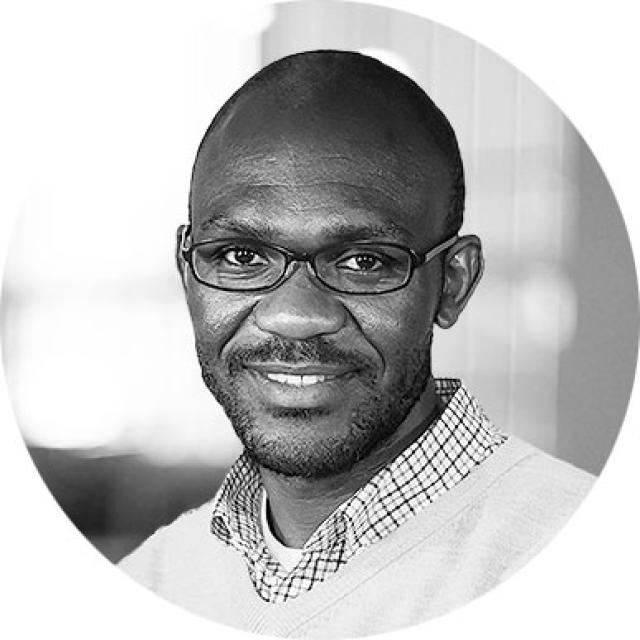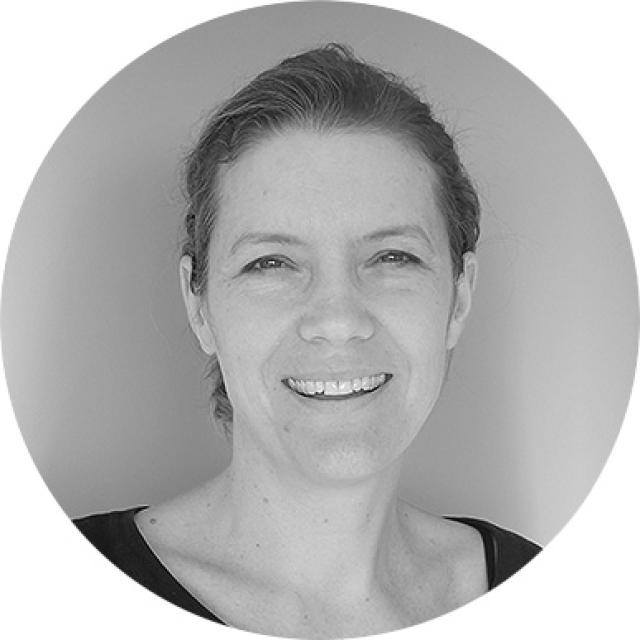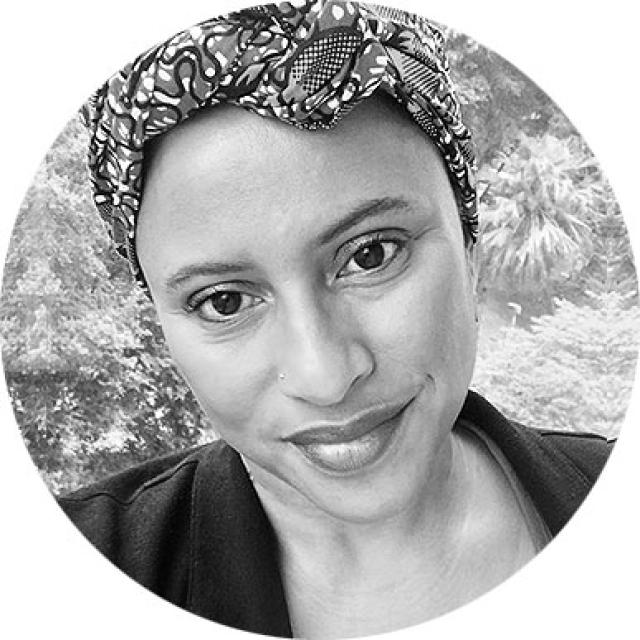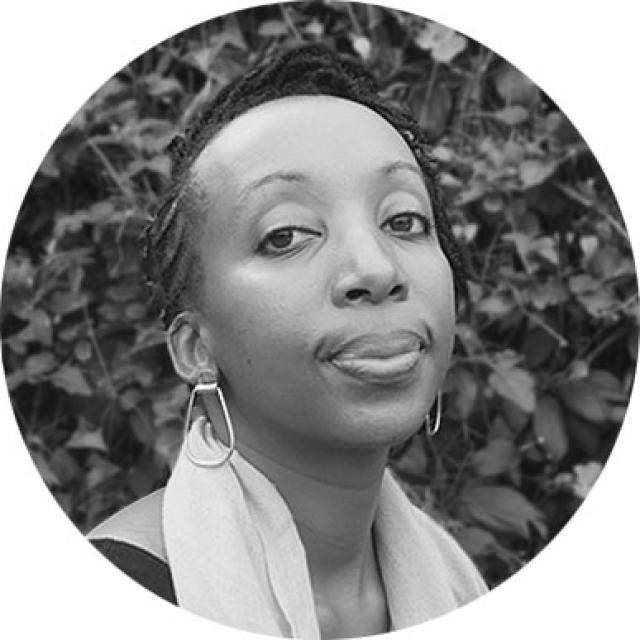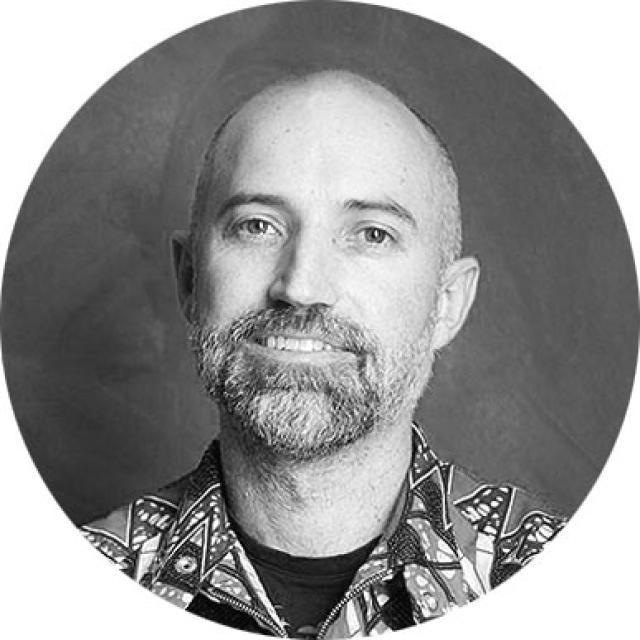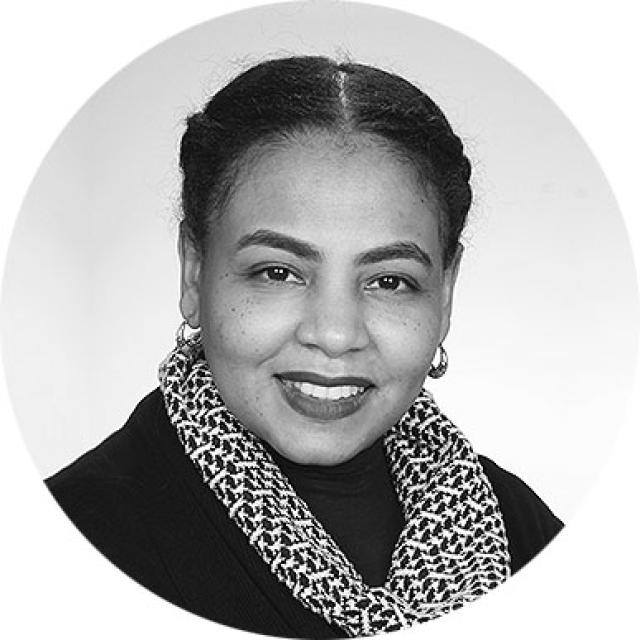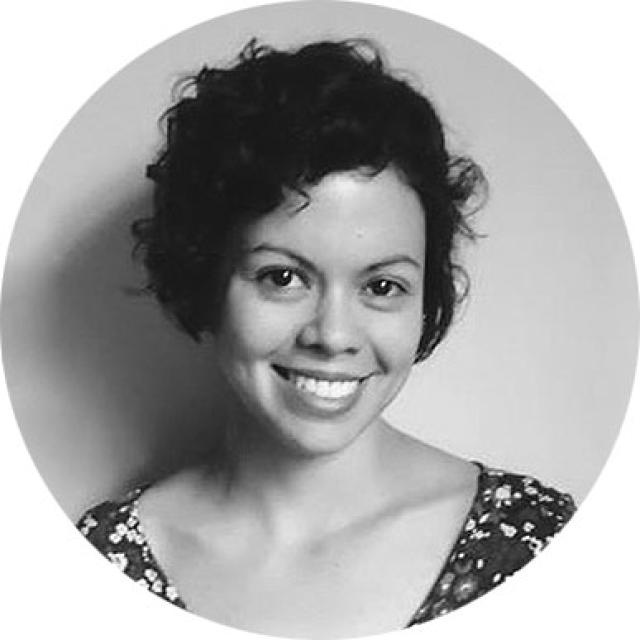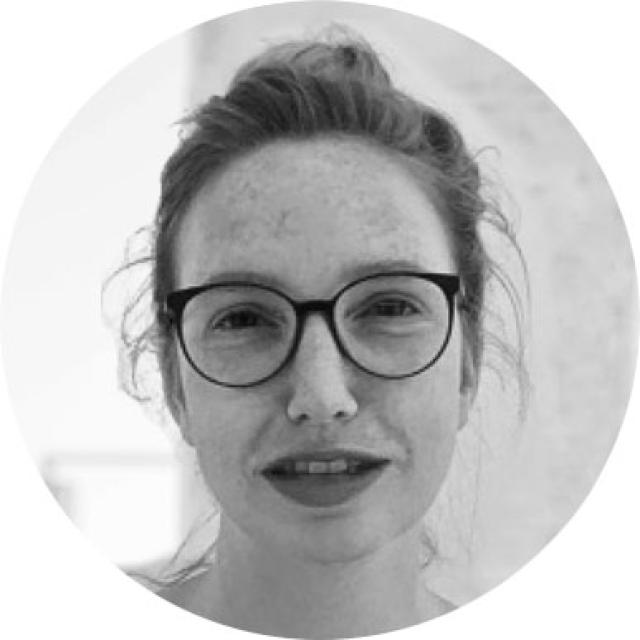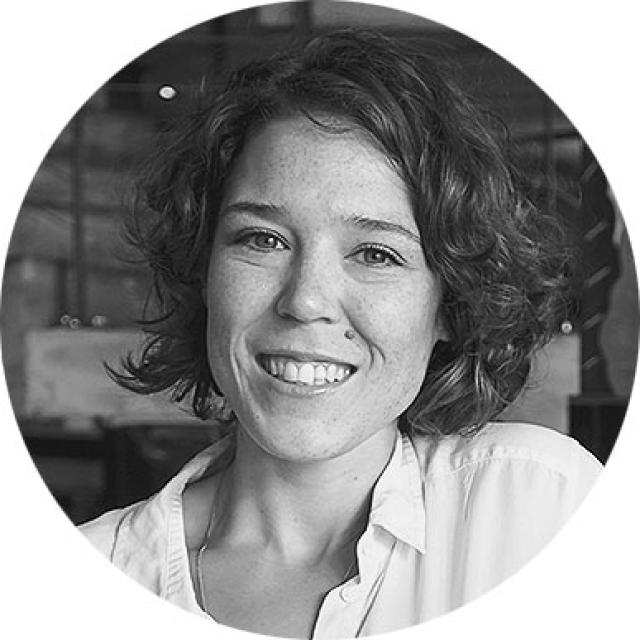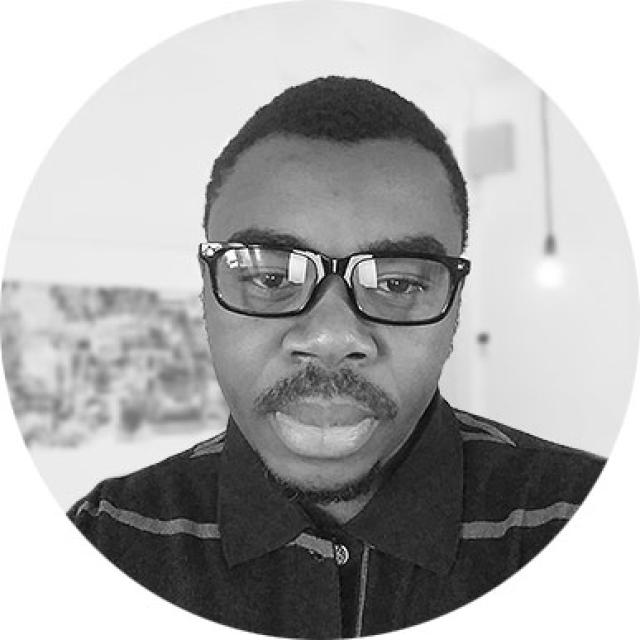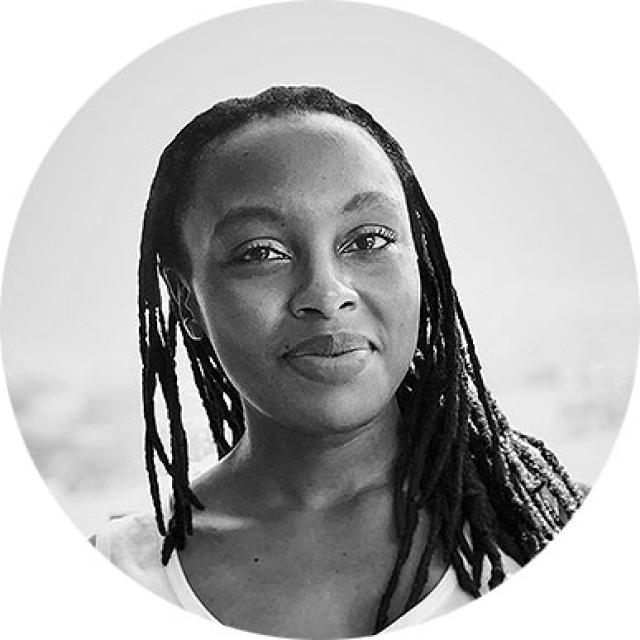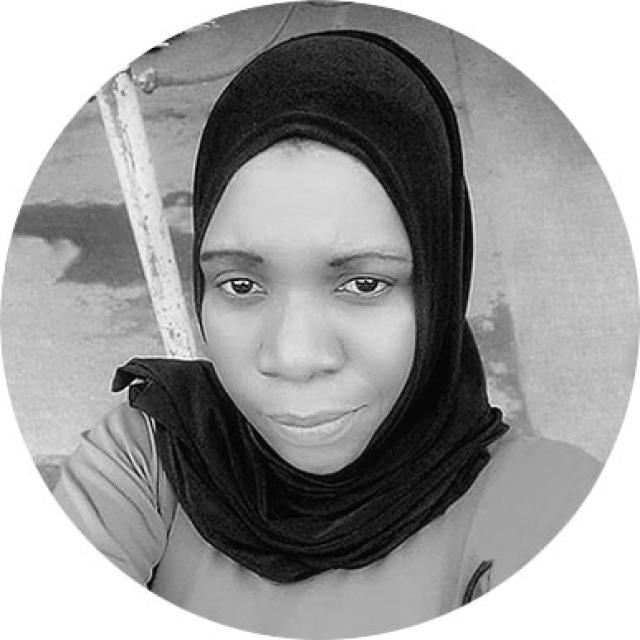How will algorithms be coded into Africa’s care infrastructure? What kinds of hospital will we need and what will they look like? In this project, we initiate critical reflections on artificial intelligence (AI) as part of the Fourth Industrial Revolution (4IR) and the possible future of hospitals in Africa.
What is the social and ethical life of algorithms and AI machines? Who is coding, for whom, in the interest of what, and what are the ethical principles that underpin machine learning and the work of coders? What regulatory and policy frameworks are African countries and communities putting in place preserve life, protect human dignity, eliminate bias and safeguard sovereignty? How can the African experiential be computerised?
The fusion between the human body, new technologies and the experience of being human requires critical questions on what kinds of technologies are being humanized, what kind of human (and life) is being coded into technologies and rendered technological, how technologies are rendering or articulating the human (life) experience, what kind of life is left behind or rendered invisible/precarious, and how to render technologies more ethically liveable.
The hospital is where these abstractions come into a concrete way, illustrating the life and death consequences of these dynamics, and thus bringing science and government closer to people, society and everyday life. The hospital is taken as a location from which to think through the ethical quandaries of digital life, being and institutionalised care, as the continent understandably rushes to embrace new technologies in its project to decolonise progress and suffering.
We ask intriguing questions about entanglements of AI and persistent modes of care, being and solidarity that have come to define what it means to be human.
- What is the ethical life of algorithms?
- How will AI change our relationship with ethics, care and hospitals?
- How will it affect our ideas about what it means to be well, disease-free, hospitalised and cared for?
- How are new technologies changing the work and training of health professionals?
This programme is funded by the Carnegie Corporation of New York and the Wenner-Gren Foundation.
Research projects
Future hospital imaginaries: AI and the ethical quandaries of care infrastructures in Africa
Divine Fuh | Director, HUMA – Institute for Humanities
How will algorithms be coded into Africa's care infrastructure? What kinds of hospitals will we need, and what will they look like? In this essay, I reflect on artificial intelligence and the possible future of hospitals in Africa. The hospital is taken as a location from which to think through the ethical quandaries of being and institutionalised care as the continent understandably rushes to embrace new technologies in its project to decolonise progress and suffering. The paper asks the intriguing question about entanglements of AI and persistent modes of care, being and solidarity that have come to define what it means to be human. How will AI change our relationship with care and hospitals? How will it affect our ideas about what it means to be well, disease-free, hospitalised and cared for?
"Will god become obsolete?" The future of African Lutheran hospitals: digital health, AI, and religious medical ethics (Madagascar/Liberia)
Dominique Somda | Junior Research Fellow
In this project, I explore the ethical debates accompanying medical AI's introduction within faith-based organisations providing healthcare services in Africa. I focus on African Lutheran Churches and their health departments; they run numerous hospitals and nursing schools across the continent. I also examine the contributions of powerful Lutheran institutions such as the Evangelical Lutheran Church in America (ELCA) and the Lutheran World Federation (LWF) as they assess the moral and theological implications of medical progress and technology uses. In addition to conventional therapies, African Lutheran churches effectively promote holistic and spiritual care. My primary field site is in Madagascar, where the Malagasy Lutheran Church (FLM) operates – concurrently with its hospitals – revival centres that cure physical and psychological ailments through exorcisms and prayers. Medical pluralism is not without its tensions, and the introduction of forms of care associated with AI could represent a new moral challenge. I am also investigating the medical and confessional work of the Lutheran Church in Liberia; this secondary field site offers the specific example of a post-conflict context – with the impact of a recent Ebola outbreak –, where a definite sense of crisis may have precipitate changes.
Southern narratives of the Future Hospital
Ralph Borland | Junior Research Fellow
This project focuses on a method for eliciting ideas about the future impact of Artificial Intelligence (AI) on healthcare from workers in hospitals in two Southern locations: South Africa and Brazil. Workshops conducted with a diverse range of hospital workers, from doctors and nurses to administrators, union representatives, orderlies, security guards and cleaners, will use creative methods including story-telling, role-playing, multimedia and narrative, to stimulate and record their ideas about the role AI is playing – and will play – in their future of work. The workshops will include communication and collaboration between the two remote groups to identify commonalities and differences between experiences in the two locations and facilitate shared learning and solidarity. The research project will use ideas and methods from work in Futures Studies, including Futures Action Research (FAR) and Ethnographic Experiential Futures (EXF), along with perspectives from "Global Narratives of AI" to explore the role of the human and the ethics of care in the 4th Industrial Revolution (4IR) in South Africa and Brazil.
Algorithmic archipelago: Cape Verde's e-governance and new technologies of cash and care
Fernanda Pinto de Almeida | Postdoctoral Research Fellow
This research project examines the intersection of these axes of public care with the National Care Plan (Plano Nacional de Cuidado) alongside the government's creation of technology hubs and reinvention of Cape Verde as a "Gateway to Africa's digital transformation" (TechPark 2020). It focuses particularly on the notion of e-governance and the rise of financial technology in a country where citizens abroad arguably outnumber the number of citizens inland and the economy consequently responds to and shapes the fast mobility of goods, money and persons (Braz Dias 2012). Pushed by a renewed public interest in Artificial Intelligence in the country, an algorithmic shift in finances and governance has not only reoriented Cape Verdeans' relation to banking but, as I will argue, accelerated the pace of transactions and social relations. Hence, this project will explore the entanglement of cash and care technologies in Cape Verde, its social and affective character as much as its political shortcomings.
Experiencing AI technologies in healthcare systems in Africa and the Middle East: a comparative approach to the usage of Babylon healthcare applications in Rwanda and the UAE
Azza M. B. Ahmed | Postdoctoral Research Fellow
There is a common discourse in media and scientific debates that Artificial Intelligence technologies will eventually lead to humanity losing its very existence by replacing human labour. However, there are counter-narratives suggesting that AI will improve the conditions for human existence, i.e., it will help to reduce the impact of climate change by providing environmentally friendly solutions, or it can improve service provision and more of the world population will have access to adequate services, such as healthcare, education, energy, etc. Through employing theoretical and methodological approaches in digital humanities and healthcare humanities, this research will compare two case studies in Eastern Africa (Rwanda) and the Middle East (UAE) on the usage of healthcare smart technologies that operate with AI, namely, telemedicine phone applications to understand how we experience the contradictory realities of these technologies and what it says about being a human in an algorithmic world. The research will answer the following questions: To what extent is artificial intelligence integrated in the healthcare systems of both regions? How is it integrated? What are the socio-economic backdrops of such technologies? Finally, what are the ethical and legal implications of AI introduction in healthcare systems in Africa compared to the Middle East?
Digital technology, health information-seeking, medical misinformation and young people in Nigeria
Chikezie E Uzuegbunam | Postdoctoral Research Fellow
As the impact of technology continues to spread in African countries, the Internet and social networks are heavily relied on for health information seeking and health communication. This reliance on digital technology for seamless access to health information then results in a number of issues, such as medical misinformation or health-related fake news, with public health implications. This study aims to explore the ecosystem of health communication via the Internet and social media and medical misinformation by paying attention to how young people access information about health, in addition to how they consume, create their own, make sense of, and share health-related fake news or misinformation. Only a limited number of studies exist in developing countries around the issue of fake news/disinformation in general, even when these contexts are some of the regions where fake news in general and health-related ones are rife, worrying, and growing. The focus on Nigeria is critical as it is the most populous African country and occupies a vantage position in Africa's journey into the Fourth Industrial Revolution and its impact on the important area of health.
Genomic data, coded algorithms and deteriorated Moroccan public hospitals: the (im)mobility of cancer patients' data through AI-driven diagnosis
Amina Alaoui Soulimani | Doctoral Research Fellow
In 2008, the national project of "Digital Morocco" was launched. Its aim was to digitise Morocco's private and public institutions, notably hospitals. This comes at a time when Morocco's landscape of public health services has been denounced to be in deterioration, with the Covid pandemic unveiling further inequalities in regards to access to health care, adequate sanitation, hygiene and a severe lack of equipment. This research inquires about how space and class marginality of cancer patients influence their access to cancer care treatment in oncology wards. It intends to trace the ways in which the assemblage of AI driven cancer diagnosis of newly introduced foreign biotechnological companies have an impact on patient access to cancer diagnosis and treatment while exploring the discrepancy/intersections between the introduction of AI and deteriorating health infrastructure in Morocco. By examining the impact of missing data-points in patients' medical reports within public hospitals, the research pursues a theoretical framework rooted in hauntology since algorithms are to be considered an assemblage affiliated to further human and non-human assemblages stretching across continents (Europe-Africa). Often considered as magic, applied medicine in Morocco remains subject to the configurations of Western biomedicine since technologies and algorithms imported are often not designed with the different African populations in mind. Thus, the aim of the research is to further pursue an alternative critical approach to examining the inclusion/exclusion of particular bodies in regards to cancer treatment, access and care, offering as a result a significant additive layer beyond governmentality and biopolitics for understanding the implications of the hegemony of AI in the politics of care and hospitals in Morocco.
Research Members
Publications
Explore peer-reviewed articles, book chapters, commentaries, and op-eds of the Future hospitals: 4IR and ethics of care in Africa
Peer-review article
Chikezie Uzuegbunam
Uzuegbunam, C. E. (2025). Perceptions and practices of young people regarding COVID-19 health misinformation and the underlying interdependencies. Cultures of Science, 0(0).
Abstract
Health misinformation has long impacted public health, influencing behaviours and adherence to guidelines. Young people are one of the social groups at the centre of health communication in the digital age; they are digital ‘informavores’, meaning they actively seek out, gather, consume and share information to meet various needs. This study examines how young adults (aged 18–30) in urban locations in Nigeria navigated COVID-19 misinformation and the underlying interdependencies this implicates. Drawing on social cognitive theory, the study takes a qualitative approach, collecting data using focus groups and individual semi-structured interviews. Findings from the critical thematic analysis confirm the severity, virality and velocity with which false information about the novel coronavirus spread in parts of the country. Besides, the results reveal that the drivers of misinformation included the government, politicians, bloggers, social media influencers and citizen journalists. Young adults utilized unique verification and correction strategies, such as deliberate scepticism and curiosity, social listening and eavesdropping, personal experience and peer or citizen fact-checking. A chain of ‘interdependencies’ were fundamental to these experiences, including (inter)personal and cultural intermediaries, religion, politics, socioeconomic status, affect and emotions, among others. Young adults advocated for a proactive government, media collaboration, ethics of care and media and information literacy interventions to combat health misinformation. The findings align with the World Health Organization's public health research agenda for managing health misinformation from a sociological point of view, with the aim to foster evidence-based intervention.
Peer-review article
Chikezie Uzuegbunam
Uzuegbunam, C.E., 2025. Youth and the Pandemic: Health Information Imaginaries and Practices while Navigating COVID-19 in Nigeria. Frontiers in Communication, 9, p.1461140.
Abstract
This study explores young adults’ perceptions, behaviors, and how they navigated pandemic-related information, drawing from social cognitive theory. In the digital age, young people, characterized as “digital informavores,” actively seek, consume, and share information, playing a crucial role in health communication. The research, involving participants aged 18–30 in two urban centers in Nigeria, focused on COVID-19 socio-health concerns, including social distancing, masking, sanitizing, movement restrictions, vaccination, infection, testing, and treatment. The analysis, employing the social cognitive lens, and following a critical thematic approach, indicates that the degree of infodemic exposure experienced during the pandemic impacted participants’ understanding, attitudes, behaviors, and risk perceptions. Participants primarily relied on digital sources and social support systems for pandemic-related health information. Their self-efficacy and risk perceptions, as well as pandemic-induced affectations, were evident throughout the data. Attitudes toward the pandemic evolved from its onset, through the announcement and easing of the national lockdown, to the vaccination rollout. Dominant perceptions included the use of “copy and paste solutions” in Nigeria’s pandemic response, COVID-19 denialism, and politicization of the pandemic, leading to mistrust in government and health authorities. The pandemic’s impacts included mental health issues and economic hardship, particularly in a country lacking social security or welfare plans. Following a low vaccination rate among participants, the data revealed vaccine lethargy, “vaccinformation void,” vaccine misinformation, vaccine distrust, and vaccine inaccessibility, due to various reasons and factors at play. Some young adults adhered to health rules due to fear and anxiety, while others were nonchalant, overwhelmed by the rules or discouraged by others’ non-compliance. The young adults’ imaginaries and behaviors were influenced by sociocultural intermediaries, religious and political actors, and Nigeria’s socio-economic conditions.
Op-ed
Azza M.B. Ahmed
Ahmed, A. M. B., & Pabón, F. A. D. (26 January 2024). Handling AI, but with care | D+C - Development + Cooperation.
Book Chapter
Ralph Borland
Borland, R., 2024. Bone Flute: An Art-Science Research Project. In How to use 3D Printing Innovations and Digital Storage to Democratize Anatomy Education (pp. 77-96). Cham: Springer Nature Switzerland.
Abstract
This chapter explores an art-research project that uses biomedical imaging to produce an artwork and exhibition while investigating a research topic. The author is the artist-researcher who designed and produced the project in collaboration with an orthopedic surgeon and a musician, while a research fellow investigating the use of emerging technologies in healthcare in Africa at the University of Cape Town. The author became a medical patient due to a diagnosis of illness during the course of the project, and brought this material into their work. The project centers on the production of the artwork Bone Flute, a replica of the author’s femur made into a flute, that was made in a public hospital using the surgeon’s tools and three-dimensional printing (3Dp) processes. This object formed the centerpiece of a public exhibition in conclusion of the research fellowship, in an artist-run gallery space. The chapter takes the form of a personal essay which explores each of the author’s roles as researcher, artist, and patient. It focuses on a number of collaborative relationships that enabled the realization of the artwork, and frames the project, and the chapter itself, as a form of storytelling.
Op-ed
Ralph Borland
Borland, R. (2023). Art meets medicine with the help of advancing AI. Wanted Online, 9 February.
Peer review article
Dominique Somda
Simone, A., Somda, D., Torino, G., Irawati, M., R., N., Bathla, N., Castriota, R., Vegliò, S., & Chandra, T. (2023). Inhabiting the extensions. Dialogues in Human Geography, 0(0).
Abstract
Across the different vernaculars of the world's urban majorities, there is renewed bewilderment as to what is going on in the cities in which they reside and frequently self-build. Prices are unaffordable and they are either pushed out or strongly lured away from central locations. Work is increasingly temporary, if available at all, and there is often just too much labour involved to keep lives viably in place. Not only do they look for affordability and new opportunities at increasingly distant suburbs and hinterlands, but for orientations, for ways of reading where things are heading, increasingly hedging their bets across multiple locations and affiliations. Coming together to write this piece from our own multiple orientations, we are eight researchers who, over the past year, joined to consider how variegated trajectories of expansion unsettle the current logics of city-making. We have used the notion of extensions as a way of thinking about operating in the middle of things, as both a reflection of and a way of dealing with this unsettling. An unsettling that disrupts clear designations of points of departure and arrival, of movement and settlement, of centre and periphery, of time and space.
Op-ed
Fanny Chabrol
Chabrol, F, et J-P Gaudillière « La santé globale : une des mondialisations de la santé ». vih.org, 18 décembre 2023.
Op-ed
Dominique Somda
Somda, D. (2022). Remède anti-covid à Madagascar : une expression du panafricanisme sanitaire. The Conversation. 7 July.
Peer-review article
Fanny Chabrol
Chabrol, F, et P-M David. « Ce que la résilience nous aura fait ». Anthropologie & Santé. Revue internationale francophone d’anthropologie de la santé, no 26 (12 avril 2023).
Abstract
Nous sommes heureux d’inaugurer cette section « Anthropolémiques »1 de la revue Anthropologie & Santé par une réflexion sur la résilience en recherche qui nous tient à cœur au sortir de trois années de pandémie2. Certains pourront penser que cette « anthropolémique » ne prend pas beaucoup de risques tant la critique de la résilience devient rétrospectivement évidente après la Covid-19. Ceci n’était cependant pas aussi évident au début de la pandémie, et encore moins au cours de l’épidémie d’Ebola en Afrique de l’Ouest qui a fait naître la question de la résilience des systèmes de santé (Kruk et al., 2015). À de rares exceptions près (van de Pas et al., 2017), la recherche en santé publique et sur les systèmes de santé internationaux et nationaux a embrassé la résilience des deux bras, sans vraiment penser où cette voie de recherche allait nous mener. Les organismes de financement s’en sont également saisie et ont fait de cette notion le cœur d’appels à projets, suivant ainsi tant un mot d’ordre politique (voir l’opération militaire « Résilience » lancée par le président Macron en mars 2020) qu’une vision de l’évolution des systèmes de santé rarement questionnée. Alors que la résilience est maintenant critiquée de toutes parts, nous souhaitons ici donner un aperçu de ce qu’elle fait concrètement à la recherche et comment elle affecte la perspective anthropologique.
Peer-review article
Fanny Chabrol
Coulibaly, A., Chabrol, F., Touré, L., Hou, R., Dramé, B.S.I., Zinszer, K., Ridde, V., 2023. Responses to Hospital Restrictions on Family Visits during the COVID-19 Epidemic in Mali and France. Health Systems & Reform 9, 2241188. https://doi.org/10.1080/23288604.2023.2241188
Abstract
Few studies have focused on the presence of families in the hospital in the context of an epidemic. The present study aims to contribute to filling this gap by answering the following question: How did professionals, patients and their families cope with more or less drastic restrictions to family visits and presence during the COVID-19 pandemic in a French and a Malian hospital during the COVID-19 pandemic? Data were collected during the first two waves of the pandemic through 111 semi-structured interviews (France = 55, Mali = 56). Most of the interviews were conducted with staff (n = 103), but also with families in the case of Mali (n = 8). The investigators also conducted 150 days of field observations, 44 in France and 106 in Mali. Thematic analysis was applied using an inductive approach. Interviews were content analyzed to identify passages in the interviews that were relevant to these different themes. The study highlighted the difficulty for the medical-clinical system to provide appropriate responses to the many emotional needs of patients in a pandemic context. Families in France benefited from a support service to reduce stress, while in Mali, no initiative was taken in this sense. In both countries, families often used the telephone as an alternative means of communicating with relatives. The results showed that in the two contexts, the presence and involvement of the families contributed to a better response to the patients’ psycho-affective demands and thus promoted resilience in this field.
Peer-review article
Fanny Chabrol
Coulibaly, A., Touré, L., Chabrol, F., Zinszer, K., Ridde, V., 2023. Quand les pratiques des soignants « calment » ou « stressent » les malades : l’accompagnement psychosocial des malades infectés par le SARS-CoV-2 à Bamako. Sciences sociales et santé 41, 69–94.https://doi.org/10.1684/sss.2023.0255
Abstract
The Covid-19 epidemic highlighted the need for psychological care of hospitalized patients infected with SARS-CoV-2. However, few studies have explored this need from an anthropological point of view. Our study aims to understand how the psychosocial support of infected patients was carried out in a referral hospital in the capital of Mali. Our ethnographic survey took place during the first two waves of the epidemic, from April to June 2020 (wave 1) and from December 2020 to January 2021 (wave 2), during which 47 semi-structured interviews and 106 observations of situations were conducted. Following the coding and transcription of the data, an inductive approach was used to analyze the material collected. We found multiple psychological difficulties among the patients, which could be cumulative. Fear of the disease is often linked to a lack of information, a feeling of abandonment by the staff and a poor quality of nursing. During the second wave, the massive arrival of dependent patients (cases of respiratory distress) increased the need for support. Psychosocial support was limited to rare attempts by caregivers to calm patients’ fears. The attitudes and practices of health care personnel (doctors, nurses, social workers) also often tended to aggravate rather than alleviate the psychological difficulties of patients. In the context of an epidemic, in order to achieve therapeutic efficacy and to help patients better cope with isolation, which is a source of recurrent stress, it is important to create the conditions to reduce the negative influence of caregivers on the mental health of patients.
Peer-review article
Fanny Chabrol
Chabrol, F., David, P.-M., 2023. How resilience affected public health research during COVID-19 and why we should abandon it. Global Public Health 18, 2212750.
Abstract
Resilience has accompanied the COVID-19 pandemic as a rallying motto, with calls by governments for a resilient society, resilient families and schools, and, of course, resilient healthcare systems in the face of this unprecedented pandemic shock. Resilience had already gained traction as an analytical concept in public health research for approximately a decade. It became a key concept despite the recognition of its lack of conceptual consistency. The COVID-19 pandemic presented itself as a perfect test-case and encouraged a multiplicity of studies on resilience and health care systems. In this commentary, we add to the existing critiques of resilience in the social sciences by reflecting on the effects of resilience when used to frame empirical inquiries and to draw lessons from the crisis. Resilience as a concept is unable to address crucial structural issues that health systems already faced throughout the world, and it remains a non-neutral political notion. We argue that we need to resist a generalised view of resilience and work with alternative imaginaries.
Book Chapter
Amina Alaoui Soulimani
Alaoui Soulimani, A. 2023. ‘We Sent Your Blood to France’: A Moroccan Study Case of Genomic (Im) mobility. In Jansen, J. and Auerbach.J. The Politics of Knowledge in the Biomedical Sciences: South/African Perspectives (pp. 217-236). Cham: Springer Nature Switzerland.
Abstract
It begins with me. I had been struggling to get a diagnosis for the workings of my inner body—that which I cannot see. My hormones, which I had self-claimed for many years to be “unbalanced” had to be investigated. My friend Ali recommended I should see his endocrinologist; he’d been pleased with her medical knowledge and listening skills. During our first appointment, Dr. Beta signed off a prescription for several blood tests to be undertaken. I chose to do the blood tests at the closest microbiology lab. The first variable which I took into account was proximity. I had gone without breakfast as recommended. A man in a white blouse inserted a needle onto a ‘visible’ vein in my left arm and took out three blood tubes which he labelled with the code the receptionist handed me after paying a bill of around $190. The procedure lasted for a few silent minutes, after which I slowly put down my rolled-up sleeve and made my way back to the reception. “When should I come back for the results? Can you send them via email?” I asked. The receptionist, which seemed used to this type of questions quickly responded that these specific tests take time, and that I would have to come back to pick up the results if I wanted to hand them in person to my doctor.
Peer-review article
Wangui Kimari
Kimari, W. (2022). Tomorrow's champions. How the fastest-growing African demographic is defying negative assumptions. The Royal Society of Arts (RSA) Journal (2).15 June.
Abstract
Over the last decade, an increasing amount of writing has emerged about Africa’s ‘youth bulge’. These narratives are circulated by African governments and regional and global multilateral institutions, including the World Bank, the African Development Bank and even think tanks such as the Brookings Institute in the US. Too often in these missives, African youth – over 226 million of them – are considered a surplus population amounting to either a ‘demographic dividend’ or a ‘ticking time bomb’.What problematic imaginaries and practices are occasioned by a calling into being that, while demographically real, is qualitatively (de)limiting?
Op-ed
Amina Alaoui Soulimani
Alaoui Soulimani, A. (2022). Local talent should code Africa’s algorithmic health infrastructures. Africa at LSE, 15 August.
Op-ed
Dominique Somda
Somda, D. (2022). Entre panafricanisme sanitaire et mission chrétienne. La saga du Covid-Organics comme récit de résistance (première partie). [Prophecy and parody. The Malagasy diplomacy of COVID-organic]. Carnets de Terrain. 8 July.
Somda, D. (2022). Entre panafricanisme sanitaire et mission chrétienne. La saga du Covid-Organics comme récit de résistance (deuxième partie) [Prophecy and parody. The Malagasy diplomacy of COVID-organic]. Carnets de Terrain. 16 July.
Book chapter
Chikezie Uzuegbunam
Uzuegbunam, C. (2021). Negotiating youth-centred research: ethical reflections on research with young people in rural and urban spaces in Nigeria, In: Spencer, G. (Ed.) Ethics and Integrity in Research with Children and Young People (Advances in Research Ethics and Integrity, Vol. 7), Emerald Publishing Limited, Bingley. 43–55
Abstract
This chapter examines the research practices, procedures and problems involved in a study investigating the digital lifeworlds of rural and urban youth aged 13–18 years in Nigeria. First, the chapter maps the key aspects of the ethical guidelines that were followed before and during the course of the study. The key aspects of the guidelines covered issues linked to information disclosure, assent/consent, confidentiality, potential harms to participants, and institutions, and financial compensation and other inducements. In addition, the chapter unpacks some of the ethical complexities and dilemmas that emerged during the research. Drawing on perspectives from the new sociology of childhood and youth-centred research approaches, the chapter examines both the opportunities and challenges involved in doing research with young people on digital technology within the African context. In line with a youth-centred approach, the study privileges young people’s views and voices to facilitate their full autonomy and rights to participate in research. The chapter draws attention to the important contextual influences and dynamics that can affect all aspects of the research process and shape the emergent ethical considerations. These include ethical conundrums such as adult–child power relationship, gendered relations and group dynamics, problems of language and cognition, ‘techno-shame’, shy and assertive participants, the drawbacks of conducting fieldwork in school settings and absent participants.
Op-ed
Chikezie Uzuegbunam
Uzuegbunam, C. (2021). Scepticism fuelled by fake news threatens Africa's vaccination drive. Corona Times. 2 August.
Op-ed
Chikezie Uzuegbunam
Wasserman, H., Uzuegbunam, C., Bosch, T. & Chuma, W. (2021). South African front-page stories about COVID were sensationalist and unhelpful. The Conversation. 9 November.
Op-ed
Chikezie Uzuegbunam
Uzuegbunam, C. et al. (2021). Spotting hoaxes: how young people in Africa use cues to spot misinformation online. The Conversation. 25 May.

